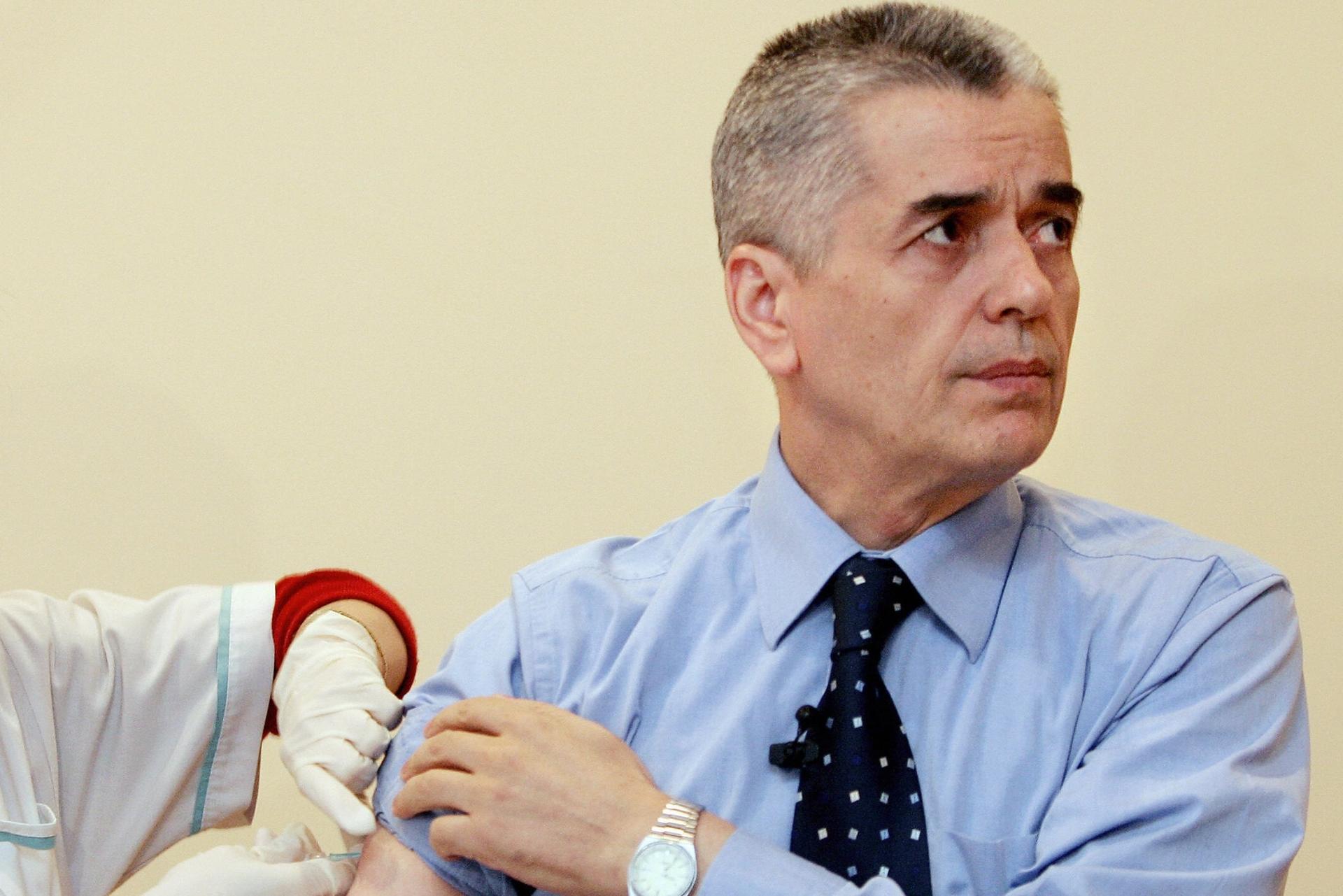Government Agency of the Year
Gennady Onishchenko gets a flu shot.
Spy agencies got most of the headlines this year. But our government agency of the year took a different approach to geopolitical machinations. Russia's Federal Consumer Protection Service leveraged its power to regulate and ban imports in order to influence several former Soviet nations that seemed to be looking westward to the EU for political and economic ties. Very slick move.
2013 was supposed to be the year of the Eastern Partnership, when the 28-state European Union would seal political and economic ties with six former-Soviet nations in Eastern Europe: Belarus, Ukraine, Moldova, Georgia, Armenia, and Azerbaijan.
But Moscow had different plans for the nations along its western border. Those nations were on the verge of signing a host of cooperation agreements with the EU at the Third Eastern Partnership Summit in late November, but Putin had designs on a different EU: the Eurasian Union, which could vie with China, the United States, and the European Union for global domination. (Hillary Clinton has called the Eurasian Union “a move to re-Sovietize the region.”)
Seems like a problem for diplomats, right? So where does the Federal Consumer Protection Agency come in?
In the carrot-and-stick game that is foreign policy, the agency has provided plenty of sticks: import bans that are really just sanctions by another name. The Kremlin's message is clear: strengthen your political and economic ties with the EU and we will mete out political and economic punishment.
Here are three things the agency banned in the weeks before the Eastern Partnership Summit.
1) Moldovan Wines
![]()
(Serhio/Wikimedia Commons)
2) Lithuanian Dairy Products
![]()
A woman looks at dairy products in a supermarket in central Moscow on August 5, 2013 (AFP/Getty Images)
3) Ukranian Chocolates
![]()
Roshen, a Ukrainian chocolate company targeted by the ban (Олена Полункіна/wikimedia commons)
According to the agency, the products were banned because of substandard quality and health risks. Once delicious, they were suddenly dangerous.
Banning chocolates, wines, and dairy products was a visible form of political and economic pressure, and there were likely many other forms of less visible pressure. When the summit ended, only Georgia and Moldova had signed agreements with the EU. Protests broke out in Ukraine after President Viktor Yanukovich backed away from EU partnership.
Russia seems pleased thus far. The Federal Consumer Protection Agency, now under new leadership, is planning to lift bans on Lithuanian dairy and Ukrainian chocolate. (No word on Moldovan wine…) And Russia has promised Ukraine discounted gas and a $15 billion bailout, of which it's already delivered $3 billion.
We want to hear your feedback so we can keep improving our website, theworld.org. Please fill out this quick survey and let us know your thoughts (your answers will be anonymous). Thanks for your time!
